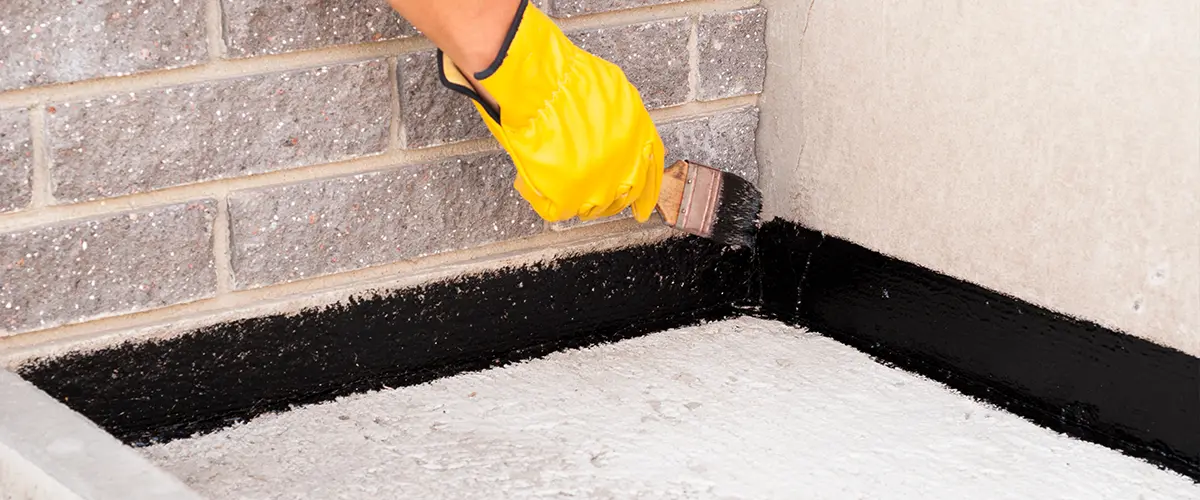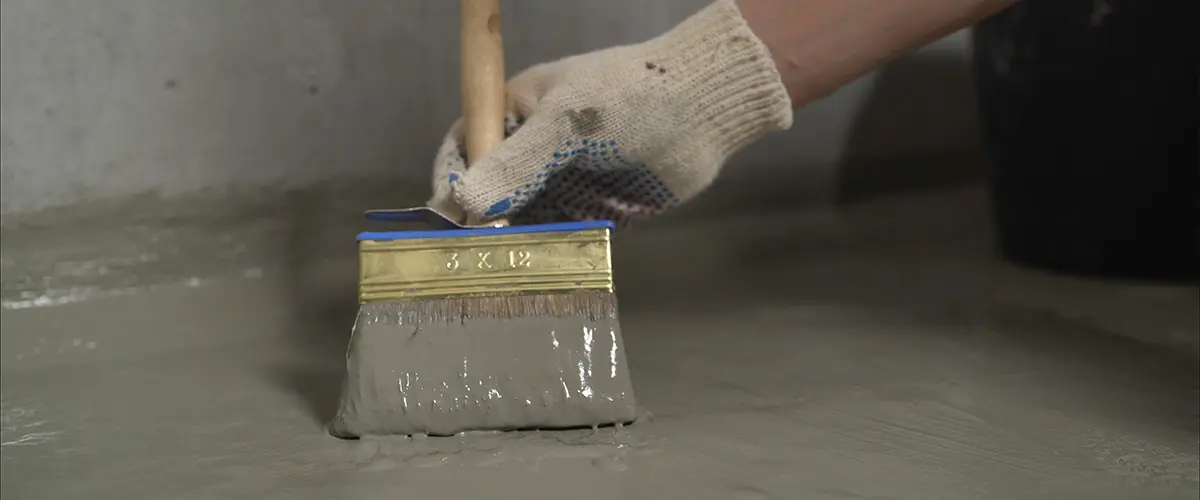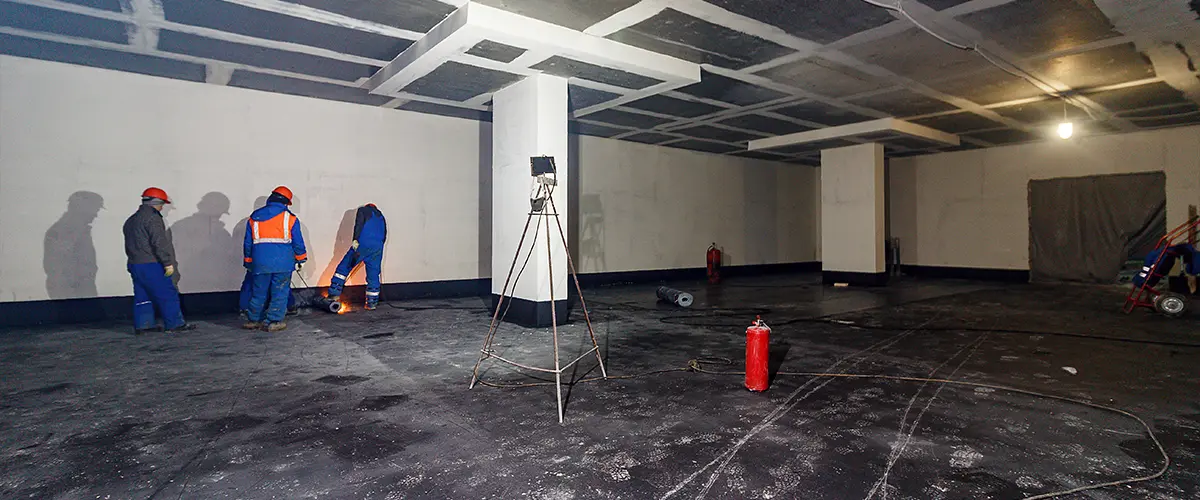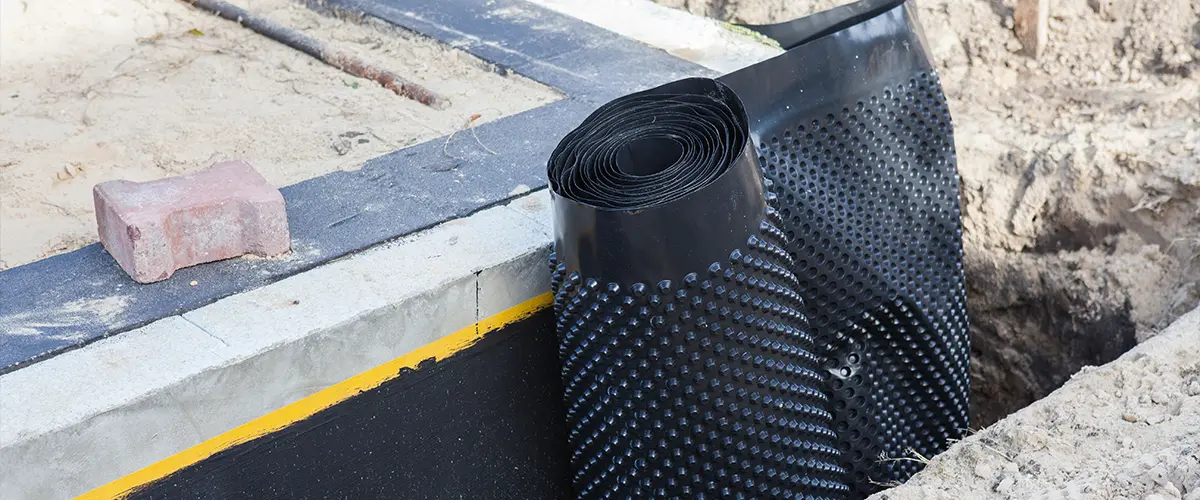If you need sealant applied to your basement’s walls, it’s best to employ a professional service, even though doing it yourself could save you money.
Companies specializing in this field, such as Capstone Waterproofing Solutions, have the training and experience to determine the state of your basement walls, select the optimal sealer for your space, and apply it correctly.
If you want to know more about the products used, discover what is the best sealant for basement walls.

What Sealant Does When Applied to Basement Walls
Water seepage into a basement can be reduced or eliminated if you use a basement waterproofing sealer. This is especially crucial in regions that receive heavy precipitation or snowfall (such as different areas in Maryland) and hence have a high water table.
The basement wall sealer serves its purpose by forming a protective layer on the basement walls. Mold, wetness, and musty odors can all be avoided by using this barrier to keep water out of the walls.
By blocking off the tiny cracks and crevices that allow air to seep in and out, sealant can also help to increase the basement’s energy efficiency. In addition to making the basement a more pleasant place to spend time, this measure can also help save money on HVAC bills.
But remember that a basement wall sealer does not replace expert basement waterproofing. If water penetration or structural damage to your basement walls is severe, it may be necessary to seek the advice of a professional to establish the best course of action.
Types of Sealant for Basement Walls
When choosing between the several existing types of basement wall sealers, you need to factor in variables such as temperature, moisture, and current needs and conditions of the space.
Concrete Sealer
Protecting concrete walls against the damaging effects of water and other liquids is the primary function of concrete sealant. It produces a barrier on the concrete’s surface, blocking the passage of water, oil, and other pollutants.
A quality penetrating concrete sealer is commonly used on concrete walls, whether new or old. Inhibiting mold and mildew growth, protecting against discoloration, and decreasing the effects of freeze-thaw cycles are all ways it can aid in lengthening the life of the concrete.
This type of penetrating concrete sealer is also effective when used on a concrete foundation.

Polyurethane Sealer
Polyurethane sealant uses a synthetic polymer recognized for its durability and flexibility. This sealant has many uses, one of which is to protect basement walls.
Because it is flexible and can accept some degree of movement without breaking and cracking, this sealant is perfect for sealing gaps and cracks in your basement floors and walls. It can penetrate the tiny pores of your basement’s walls and floor, offering moisture intrusion prevention on new and old basement walls.
Since it’s water-resistant, it is an excellent choice for use in damp or moist places, such as basements.
Epoxy Sealer
Epoxy sealant combines epoxy resin and hardener. Together, these two materials form a strong and long-lasting adhesive, making them ideal for patching up damaged surfaces like a basement wall.
Given its resistance to water, chemicals, and other forms of damage, an epoxy sealer is ideally suited for repairing cracks and holes in basement walls. It is a versatile alternative for fixing a basement because it can also be used to fix cracked concrete or brickwork.
While epoxy sealer has its uses, it is not always the greatest choice. Professional advice should be sought if water infiltration or structural damage to basement walls is severe.
In addition, surfaces that are unclean, oily, or covered in another sealer or paint may prevent the epoxy sealant from adhering effectively. For this reason, it is crucial to prepare the surface for waterproofing basement walls properly.

Silicate Sealer
A sealer known as silicate sealant is produced from potassium or sodium silicate and various ingredients. When applied to a surface, it sinks deep into the material and reacts with the minerals to build an unbreakable, permanent bond. Basement walls, along with other concrete and masonry surfaces, are suitable candidates for sealing with silicate.
Due to its ability to penetrate deeply into the substrate and form a strong, resilient, and chemically resistant barrier, silicate sealant is ideally suited for preserving masonry surfaces.
It can withstand rainy conditions, making it a good choice for places like basements.
Acrylic Sealer
One variety of sealants, known as acrylic sealants, is formulated from acrylic polymers and additional additives. It often prevents water seepage through basement walls and other porous surfaces.
Because of its flexibility and resistance to cracking and breaking, an acrylic sealant is ideally suited for filling in the gaps and fractures in your basement wall. In addition to its durability, it is also resistant to water and other forms of damage, making it an excellent choice for usage in damp or moist areas, such as basements.
Even though acrylic sealant works well for mending basement wall dings and dents, it may not be the greatest choice for surfaces that experience frequent or severe structural movement or damage.
What Happens If You Don't Seal Basement Walls?
- Water can leak in and cause mold and other structural problems.
- An unsealed basement wall can let air in and out, increasing your heating and cooling bills and decreasing your home's energy efficiency.
- Indoor air quality issues are a health risk, and mold and mildew growth in unfinished basement walls are the most common cause.
- It may deter potential purchasers and lower your home's selling price.

Does Your Basement Waterproofing Company Apply Sealant to Basement Walls?
We apply a waterproof sealant to the basement’s walls as part of our services. We can seal your basement walls, set up a sump pump, fix any leaks or cracks, and set up a drainage system to keep your basement dry and safe from water damage.
Before deciding on a sealant for your basement walls, we will examine the current state of your walls to ascertain what will work best in your situation. Depending on the amount of damage and the surface being sealed, we may suggest a choice of sealant alternatives.
The surface is cleaned, and any damage is repaired before applying the sealer. We employ a wide range of tools and methods to apply the sealant, such as spray cans, brushes, and caulking guns.
How We Can Be of Assistance
Wall sealing is a must if you want to keep your basement dry, pleasant, and healthy. Proper sealing of your basement walls can prevent mold growth, water damage, and other problems that might affect your house and health.
We use the best basement wall sealing products on the market, focusing on dealing with water intrusion and wall repair. We can fill cracks in a concrete wall, apply top-tier basement waterproofing paint, and waterproof basement walls like no other company.
At Capstone Waterproofing Solutions, we’ve served hundreds of happy customers and upgraded their basements to turn them into living spaces for the entire family to enjoy.
Give us a call today at (202) 389-9121 if you want to learn more about what it takes to have your basement finished and waterproofed!
